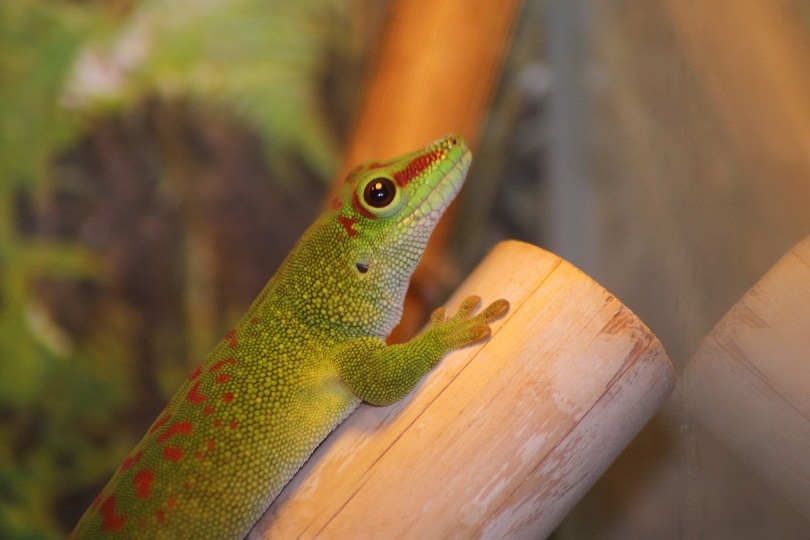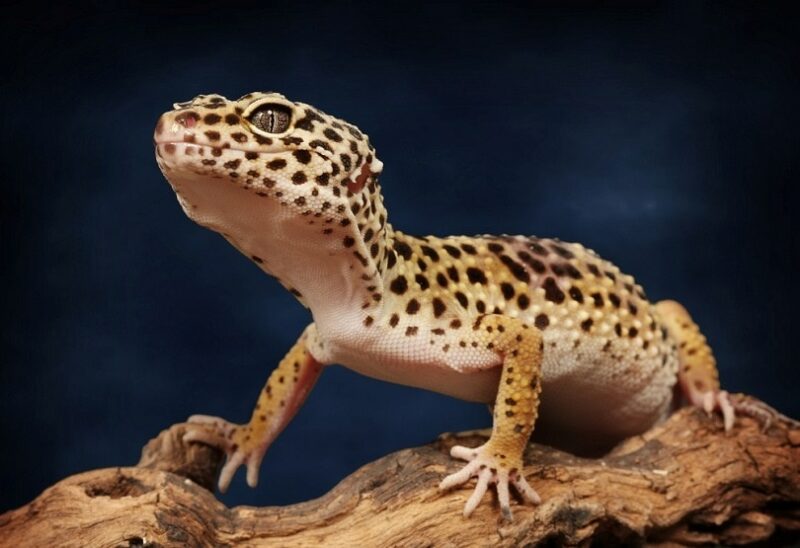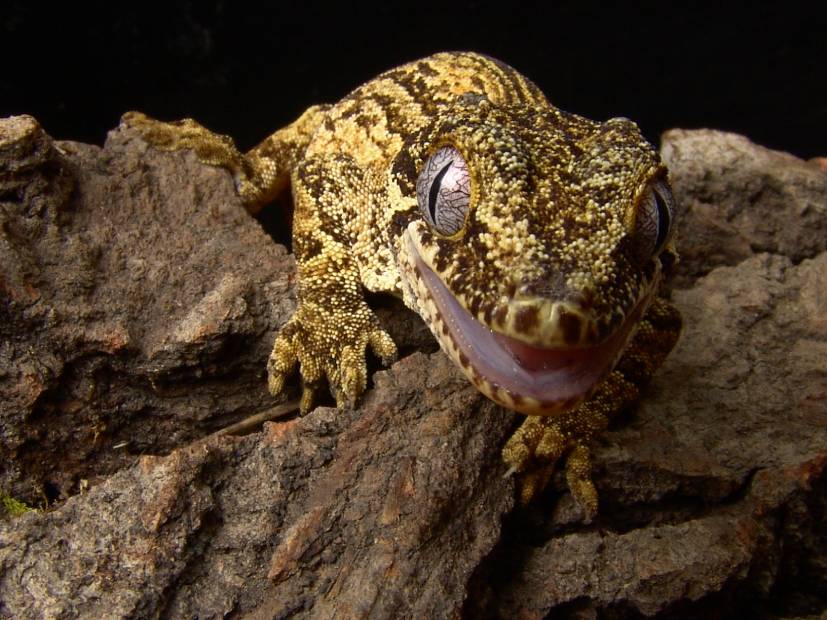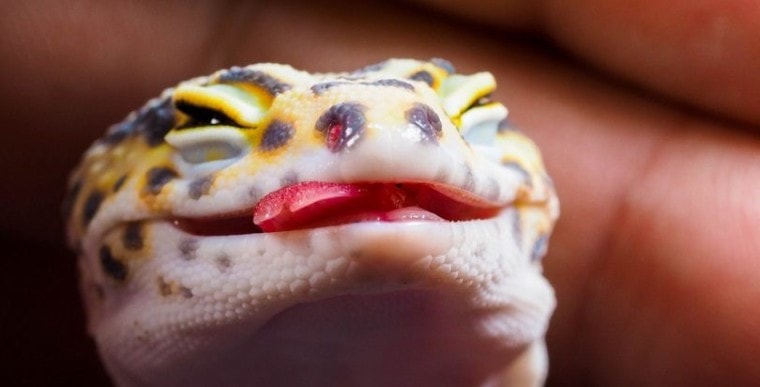
Leopard geckos are hardy reptiles with long lifespans of up to 20 years in some cases, and they rarely get sick. Of course, this doesn’t mean much when you notice your reptile pet acting strangely and fear the worst.
Because Leopard Geckos are so hardy, they hide sickness well, and they have a very slow metabolism and often will only show signs of illness when a disease has progressed to the point where they need medical intervention immediately. Fortunately, for the observant pet owner, there are several tell-tale signs that your reptile is in imminent danger, and keeping an eye out for these signs will help you treat your pet before it’s too late.
In this article, we look at the various signs of a Leopard Gecko dying and what you can do about it.
The 5 Signs Your Leopard Gecko Is Dying
1. Rapid weight loss
Any sort of rapid weight loss is the first sign of a problem. If you’ve noticed your Gecko losing weight rapidly over a short space of time, there may an underlying illness. There are a variety of reasons that this could be happening, including poor diet, poor living conditions, infections, and parasites. The first sign of weight loss is usually in the tail — Leopard Geckos store fat reserves in their tails and will live off this if they cannot find food. A thinner than usual tail is the first sign of weight loss.
On average, a male Leopard Geckos weighs between 60-80 grams and females between 50-70 grams. If your Gecko has suddenly dipped below this, take them to a vet immediately.

2. Lack of appetite
Loss of appetite is a sure sign of illness in many animals, including Geckos. Before you panic, your Gecko may just be bored with their food, so you may want to try and change it up. The temperature of your pet’s enclosure may also be adding to their lack of appetite, so make sure their cage is at the right temperature and humidity.
If your Gecko is not at all stressed or dehydrated and their tank is in perfect order, there may be something more serious at hand, and they’ll need to go for a checkup with a vet.
3. Abnormal droppings
Another sign that something is wrong is an abnormal or significant decrease in droppings. If there are no droppings at all for more than a couple of days, there is something seriously wrong with your reptile. One of the most common reasons for sudden death in Geckos is impaction. This occurs when they’ve eaten something that they are not supposed to, causing a blockage or digestive issues. Early detection is best because you can sort out the issue and get your pet seen to; if left too late, impaction can easily cause death.
Impaction can cause abnormal or reduced droppings, but most commonly, there are no droppings at all. If you notice a sudden change in your Gecko’s droppings, we highly recommend taking them to a vet as soon as possible.
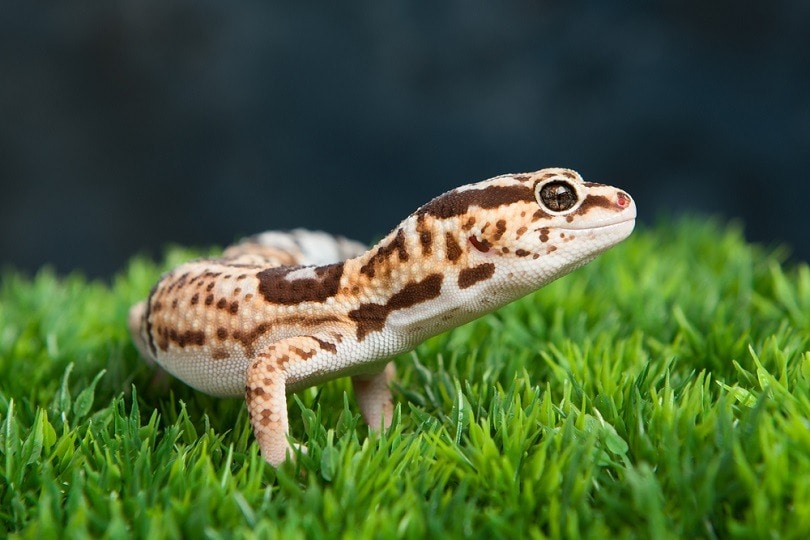
4. Lethargy
A general sign of happiness and good health in Geckos is curiosity, enthusiasm, and energy. If you’ve noticed your Gecko’s mood and energy levels take a sudden dip, it could be a sign that they are ill. Geckos will often stay hidden in one spot and not move for hours at a time if they are feeling ill, and if you notice this behavior, you’ll need to take them to see a vet immediately.
5. Sunken eyes
Sunken eyes are usually a sign of dehydration, and if your Gecko’s eyes are looking sunken into their face, they may be dehydrated. Dehydration can lead to a host of other issues in your reptile and needs to be addressed right away. Make sure that your Gecko has plenty of fresh, clean water to drink and that its tank is at the correct humidity.
Other signs of dehydration in Geckos are a loss of skin elasticity, a wrinkled appearance in their skin, dry and flaky skin, sticky mouth, and muscle loss. These symptoms usually occur over a few days and not all at once, but proper care should prevent this from happening.
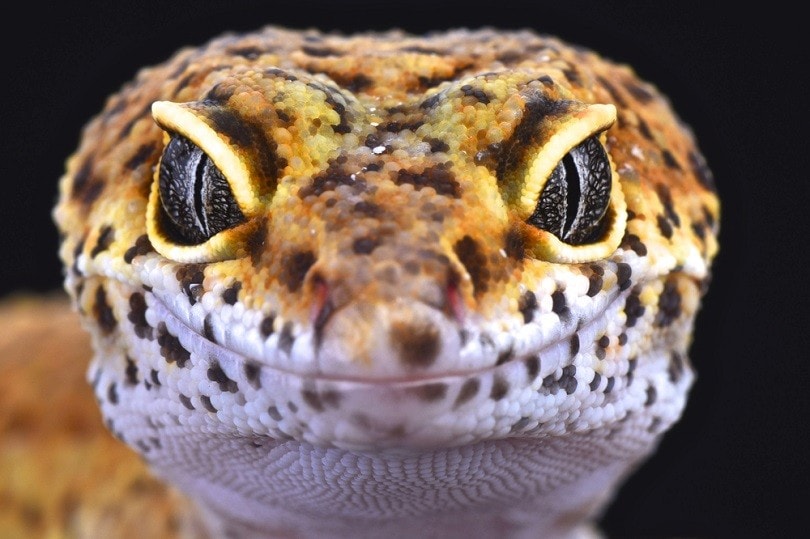
How to prevent illness in Leopard Geckos
While a few illnesses are difficult to avoid, there are a variety of ways that you can prevent your Gecko from getting seriously ill. Geckos are generally long-lived, hardy, and healthy reptiles, and with proper care, they rarely get ill.
Can you treat a sick Leopard Gecko yourself?
There are a few illnesses that you can treat yourself, although only if they are relatively minor and haven’t progressed very far. Prevention and curing dehydration are simple: Make sure your Gecko has enough clean water to drink! The humidity in their cage also has a large part to play, so make sure it is appropriate for them. A mild impaction found at an early stage can also be treated at home with a warm bath and soft, gentle belly rub. This may be enough to loosen the stool and resolve the impaction; however, if this doesn’t help within a few hours, it’s best to take them to a vet.

Final thoughts
No matter the pet you have, they are an important part of your life, and it can be especially worrying and stressful if you suspect that they have a life-threatening issue. If you notice any of these signs, the best course of action is an immediate visit to the vet, as even a few hours can be the difference between life and death. Additionally, Geckos are experts at hiding illness, so you need to act quickly with even the smallest signs.
Related read:
Featured image credit: somsak mungmee, Shutterstock


